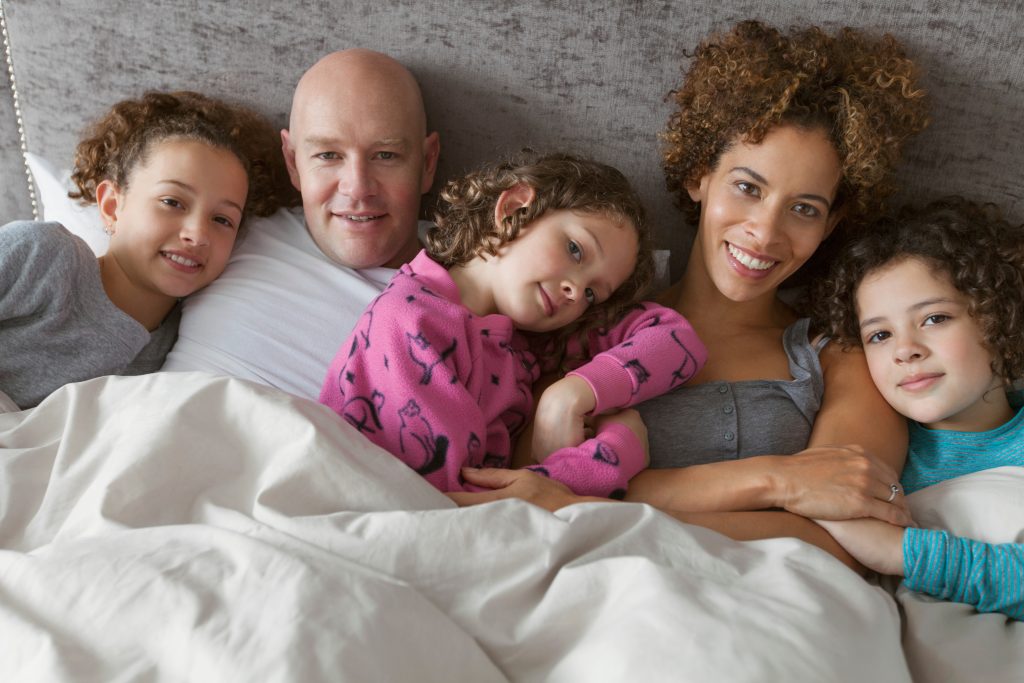Married With Children.

I’ve counseled many couples through the transition from being single to becoming a married couple, and then from being a married couple to the bliss and stress of “married with children.” Raising children can be an amazing journey for couples, allowing them to explore and heal all sorts of things, to grow individually and together as a team. Raising kids together can be one of the most amazing bonding experiences you can share.
Harried With Children
It can also be a minefield for conflicts and fights. The famous playwright, Nora Ephron, wrote that “Having a first child is like throwing a hand grenade into a marriage.” Oh, yeah, baby! An eight-year study of married couples found 90% experienced a decrease in marital satisfaction once the first child was born. Yes, that was 90%.
So it looks like you either pray you’re in the 10% of couples who didn’t or you better get a plan! What makes the difference between the couples who seem to be the happiest after having children?
1. Happy Couples Are Couples First
Couples who not only last for the long haul, but actually seem to enjoy the journey are the ones who never forget that their family started with just two people. And they nurture those two. They make time for romantic gestures, constant signs of affection, and regular “date nights.”
They don’t stop courting each other, and they don’t want to. They realize there is so much more to explore and get to know about the other person. They put effort into keeping this primary relationship vibrant, alive, and happy…just as they do for their kids.
2. Happy Couples Get On The Same Page
Parenting is really hard work if you’re doing it anywhere close to “right.” You have to really know your kids, your values, and your unique style of parenting. You have to know what your family rules are, as well as how, why, and when to make exceptions to them.
Happy couples are constantly talking about parenting. They are informing each other of what they are seeing, noticing, learning, and thinking about parenting. (They’re just NOT doing this on their “date night!”)
Happy couples take the time to get on the same page about rules, consequences, and routines. Happy couples support each other in this monumental effort, rather than undermine each other for not being perfect as parents.
3. Happy Couples Plan For The Empty Nest
Happy couples with kids aren’t living every day wishing and waiting for their kids to leave. But they ARE planning for the time in their lives when they have more time to spend together again, are able to be more spontaneous in their plans, and able to put more resources toward their shared interests and dreams.
If a couple is too child-centered and doesn’t take the time to nurture the couple’s relationship, when the kids leave (they leave?!) you can have two people sitting across the dining room table from each other wondering what to talk about and what to do. Maybe even wondering if they want to be together.

Happy couples aren’t going to be in that situation. They’ve been talking, planning, and doing fun things together all along…nurturing that unique relationship within the family. The one that started it all!
Dr. Anita Sanz, PhD, Psychologist
